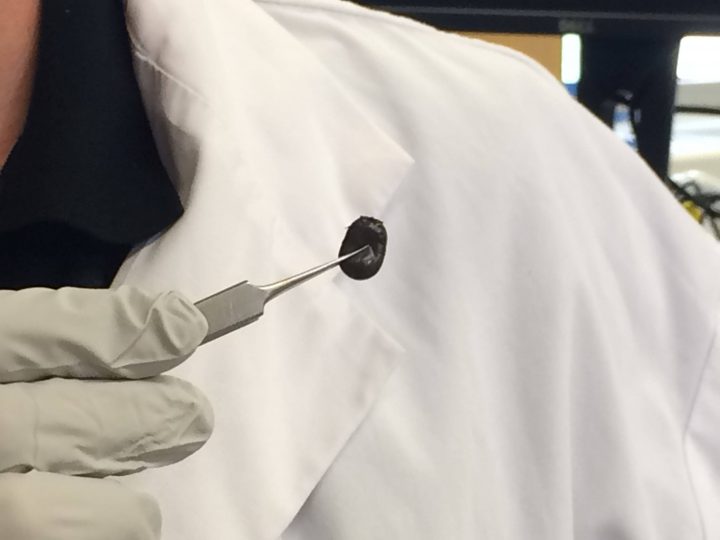With campsites and recreational areas across the province expected to be bursting at the seams with outdoor enthusiasts this May long weekend, health officials are warning Albertans to be mindful of ticks and to submit them to health authorities if they come across the parasites.

“Alberta is known for our world-class wilderness and wildlife, and our government wants to ensure all families have the tools they need to enjoy the great outdoors safely and healthily,” Health Minister Sarah Hoffman said in a news release issued Friday. “Whether they are going fishing out of province or camping in our beautiful mountains, I encourage families to be aware of ticks, and to know how to safely remove and submit them.”
The small spider-like creatures bite humans to fasten themselves onto their skin and then feed on their blood.
“While most ticks don’t cause serious health problems, it’s important to remove a tick immediately to avoid potential infection or diseases and submit it for testing,” Alberta Health says on its website.
“So far in 2018, no ticks that have tested positive for the Lyme bacteria have been found,” Michael Francoeur, a spokesperson for Alberta Health Services, said in an email. “Between 2013 (the first year of the expanded tick surveillance program) and 2017, the number of ticks submitted by Albertans to the program has almost tripled, but the proportion of ticks carrying Lyme disease bacteria has not increased.”
Across the country, some health researchers have said the spectre of Lyme disease in humans, caused by ticks, is growing.
READ MORE: Tick forecast 2018: Experts predict more Lyme disease in Canada
Watch below: Some videos from Global News stories about ticks and Lyme disease.
“What we’re seeing is definitely a range expansion. This is not a problem that’s getting smaller, it’s tending to get larger in terms of the range of the tick,” Robbin Lindsay, a research scientist with the Public Health Agency of Canada who specializes in ticks, said earlier this month.
About 20 per cent of blacklegged ticks carry the bacteria that causes Lyme disease, he said. Symptom can include fever, a rash and fatigue. Left untreated, Lyme disease can cause facial paralysis and heart and neurological disorders.
However, the Alberta government says test results have shown “ticks carrying Lyme disease bacteria do not have established populations in Alberta, and the risk of contracting Lyme disease here is very low.”
“Alberta’s tick surveillance program relies on Albertans submitting ticks to determine if populations of ticks able to cause Lyme disease are present in the province,” said Dr. Kristin Klein, deputy medical officer of health in Alberta.
“Thanks to tick submissions from previous years, we know the risk of getting Lyme disease in Alberta is very low. I encourage Albertans to keep submitting so we can continue to monitor the situation here.”
Any Albertan who finds a tick on their body should carefully remove the creature with tweezers as soon as possible.
Anyone concerned about a tick bite or who believes they may have contracted Lyme disease should visit their doctor and bring the tick with them if they can. People who find ticks on their pets or farm animals should take them to a veterinarian.
Alberta Health offers the following tips for people to reduce their risk of getting a tick bite:
· Covering up as much skin as possible when going into wooded or grassy areas
· Using bug spray that contains the chemical DEET, IR3535 or Icaridin
· Checking themselves and their pets for ticks after spending time outside
· Being aware of the risk of Lyme disease when travelling outside of the province to places where ticks that can carry the Lyme disease bacteria have established populations
-With files from Global News’ Leslie Young







-_TOR1CDW3_1_848x480_1228529731660.jpg?w=1200&quality=70&strip=all)








Comments